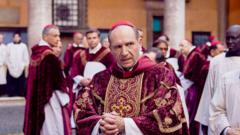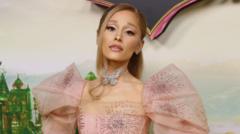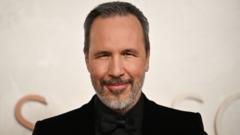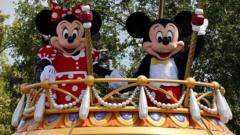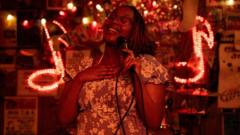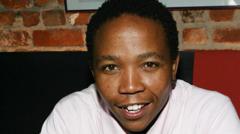The 2024 film "Conclave," a considerable box office success and Oscar frontrunner, delves into the intricate process of electing a pope, portraying a scenario void of clear contenders. With the actual election of Pope Francis's successor imminent on May 7, the film's behind-the-scenes narrative resonates powerfully, offering insight into the esoteric workings of the Vatican.
The conclave, occurring entirely within the secluded walls of the Sistine Chapel, will be shrouded in mystery until the white smoke signals a new papal leader. But how does "Conclave" reflect the real-life dynamics at play, and why is there such fascination with this process?
The film, adapted from Robert Harris's bestselling novel, portrays the cardinal-electors as they retreat from the outside world during the election. Their communication with outsiders is strictly forbidden, but everyday needs, such as food, remind us they are not entirely isolated. According to Stephen Bullivant, a theology professor, this isolation seeks to shield the electors from external influences—a stark contrast to the modern call for transparency and scrutiny, as highlighted by Anna Rowlands, a professor of Catholic social thought.
The dramatic tension of "Conclave" is amplified through its dense atmosphere of introspection, where cardinal-electors grapple with profound responsibilities. As the election of a new pope unfolds with no clear frontrunners, the film illustrates the intense politicking behind closed doors, filled with strategic alliances and hidden agendas.
Tina Beattie, professor emerita, notes that prior to the official beginning of the conclave, extensive maneuvering and negotiations occur, laying bare a reality where not all cardinals share the same vision.
While the film introduces an enigmatic character—a nameless cardinal—this fictional element reminds viewers that in reality, participants are already firmly appointed by previous popes, making any truly unexpected contenders unlikely.
Yet, the impending election stands as one of the most unpredictable in recent history, with roughly 80% of eligible cardinals appointed by Pope Francis, encompassing diverse political backgrounds and global perspectives.
Director Edward Berger aims to depict the cardinals as relatable figures, humanizing their roles within this ancient ritual. The film captures the essence of their personal struggles, ambitions, and triumphs, reflecting a complex blend of divine purpose and earthly challenges.
Ultimately, "Conclave" not only illuminates the papal election process but also poignantly underscores the human emotions intertwined with it—loss, ambition, and the courage to navigate one of the Church's most significant undertakings.

